Creating your homemade soap-based insecticides is a fantastic way to tackle garden pests. These natural solutions are not only practical but also environmentally friendly. In this blog, we’ll delve into the science behind these DIY concoctions, providing you with a clear understanding of how they work. You’ll discover straightforward recipes and step-by-step instructions to make your garden a pest-free paradise.
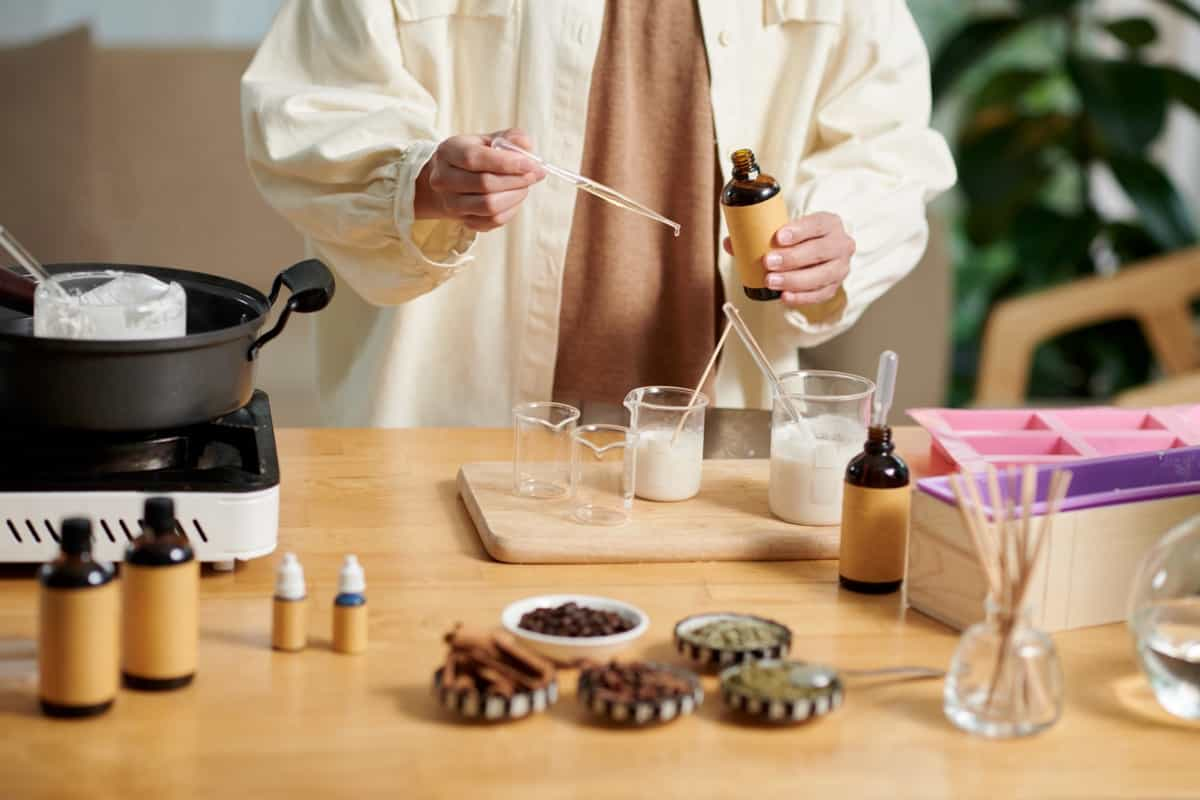
Homemade Soap-Based Insecticides
Introduction to Soap-Based Insecticides: Understanding Their Role in Garden Pest Management
If you are looking for a natural and eco-friendly way to control pests in your garden, consider soap-based insecticides. These products use soap as the main ingredient to kill or repel insects that can damage your plants. Soap-based insecticides work by disrupting the protective layer of the insect’s skin, causing dehydration and death. They also interfere with the insect’s ability to breathe and feed. Soap-based insecticides are effective against soft-bodied pests such as aphids, mealybugs, whiteflies, spider mites, and scale insects. They are less effective against hard-bodied
The Benefits of Homemade Soap-Based Insecticides for Garden Pest Control
- Soap-based insecticides are biodegradable and non-toxic to humans, pets, and beneficial insects. Unlike synthetic pesticides, soap-based insecticides do not persist in the environment or accumulate in the food chain.
- Soap-based insecticides work by disrupting the cell membranes of insects, making them to dehydrate and die. They are specially effective against soft-bodied insects, such as mealybugs, aphids, whiteflies, spider mites, and scale insects.
- Soap-based insecticides can be made with simple ingredients that you already have at home, such as liquid dish soap, vegetable oil, water, and optional additives like garlic, chili peppers, or neem oil. You can customize your soap-based insecticide to suit your needs and preferences.
- Soap-based insecticides are easy to apply with a spray bottle or a garden hose. You should spray the affected plants thoroughly, covering both the upper and lower surfaces of the leaves. You may need to repeat the application every few days or after rain until the pests are gone.
- Soap-based insecticides are a great alternative to chemicals that cause harm your health and the environment. By making your soap-based insecticides, you can save money, reduce waste, and enjoy a healthy and beautiful garden.
In case you missed it: Pest Management in Marigold Crop: Major Insect Pest of Marigolds and Best Insecticide for Marigolds
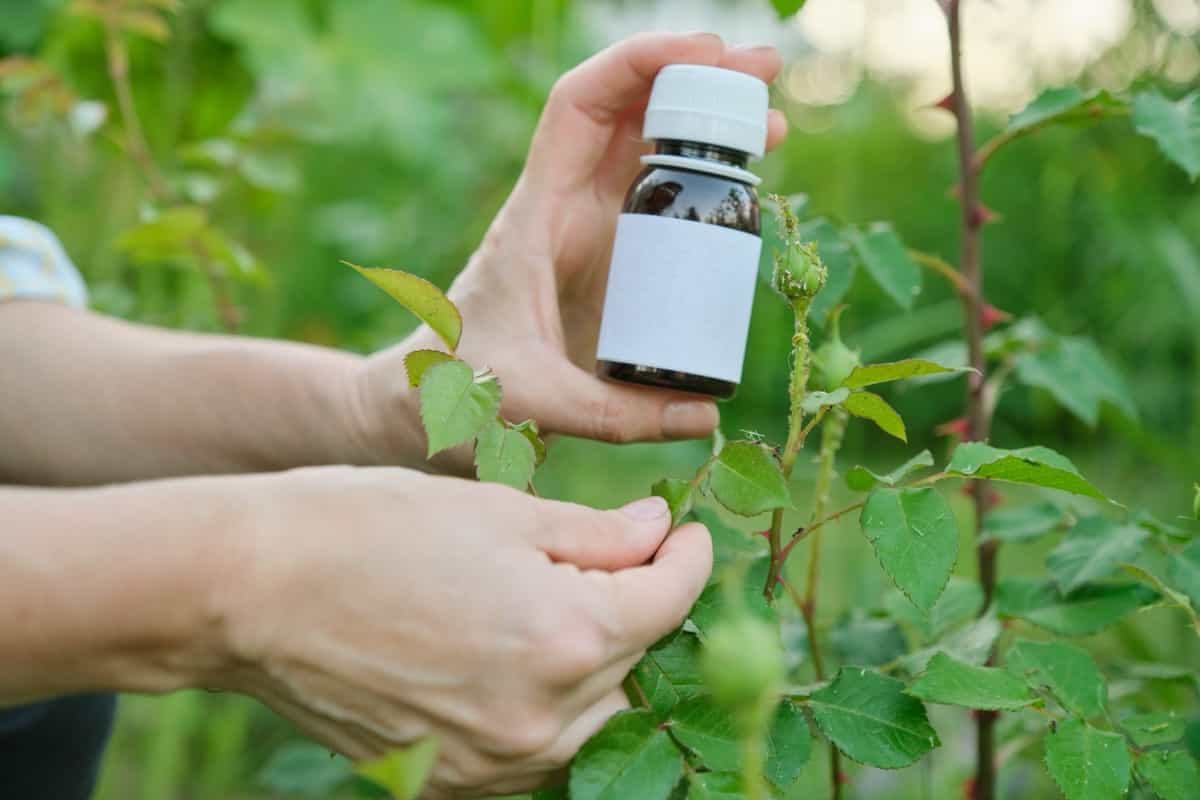
Essential Ingredients for Making Soap-Based Insecticides at Home
To protect your plants from pests, consider making your soap-based insecticides at home. These natural and eco-friendly methods work by disrupting the insect’s cell membranes and causing dehydration. To make insecticides, use distilled or rainwater, pure soap without additives, fragrances, detergents, and vegetable oil to increase efficacy.
Optional ingredients like vinegar, baking soda, garlic, or hot pepper can also be added to enhance the effectiveness. To make the soap-based insecticide, mix one tablespoon of soap with water, shake well, and add one teaspoon of oil and any desired ingredients. Spray the solution to affected plants, covering both sides of the leaves. Avoid spraying on flowers or buds, as the soap may damage them.
Repeat the process every few days or as needed until the pests are gone. Soap-based insecticides are a cost-effective and easy way to control garden pests without harming the environment or your health. Try making your own today and see the difference in your plants’ health and the environment.
Step-by-Step Guide to Creating Homemade Soap-Based Insecticides
- Gather Your Ingredients: You’ll need a few simple items. Get some liquid soap, preferably mild, and water. You can also add vegetable oil for added effectiveness.
- Mix Soap and Water: In a spray bottle, combine 1-2 tablespoons of liquid soap with a quart of water. This mixture is your base.
- Optional: Add Oil: If you’re dealing with tougher pests like aphids or mites, add a teaspoon of vegetable oil to the soap-water mix. The oil helps suffocate the insects.
- Shake Well: Secure the spray bottle’s lid and shake it vigorously to ensure the soap and water blend thoroughly.
- Spray on Plants: When you spot pests on your plants, give them a gentle spray with your homemade insecticide. Make sure to coat both sides of the leaves.
- Repeat as Needed: Keep an eye on your garden. If pests persist, reapply the spray every few days until the problem is resolved.
- Avoid Direct Sunlight: It’s best to apply the insecticide in the early morning or late afternoon to prevent plant damage in strong sunlight.
- Store Properly: Store any leftover mixture in a cool, dark place for future use.
Understanding the Science Behind Soap-Based Insecticides and Their Effectiveness
Soap-based insecticides are made by mixing liquid soap with water, acting as a surfactant to reduce water’s surface tension and spread it more easily on plant leaves. They are effective against soft-bodied insects that feed on plant sap but not hard-bodied or protective-shelled insects. They do not kill insect eggs or larvae, so regular application is necessary. They are safe for humans, animals, and beneficial insects, leaving no harmful residues on plants or soil.
They are cheap and easy to make at home with common ingredients. However, they can damage plants with hairy or delicate leaves and cause leaf burn in direct sunlight or high temperatures. Soap-based insecticides are useful for organic gardening but should be used carefully and combined with other pest management practices like crop rotation, companion planting, and biological control.
In case you missed it: Pest Management in Rose Crop: Major Insect Pest of Roses and Best Insecticide for Roses
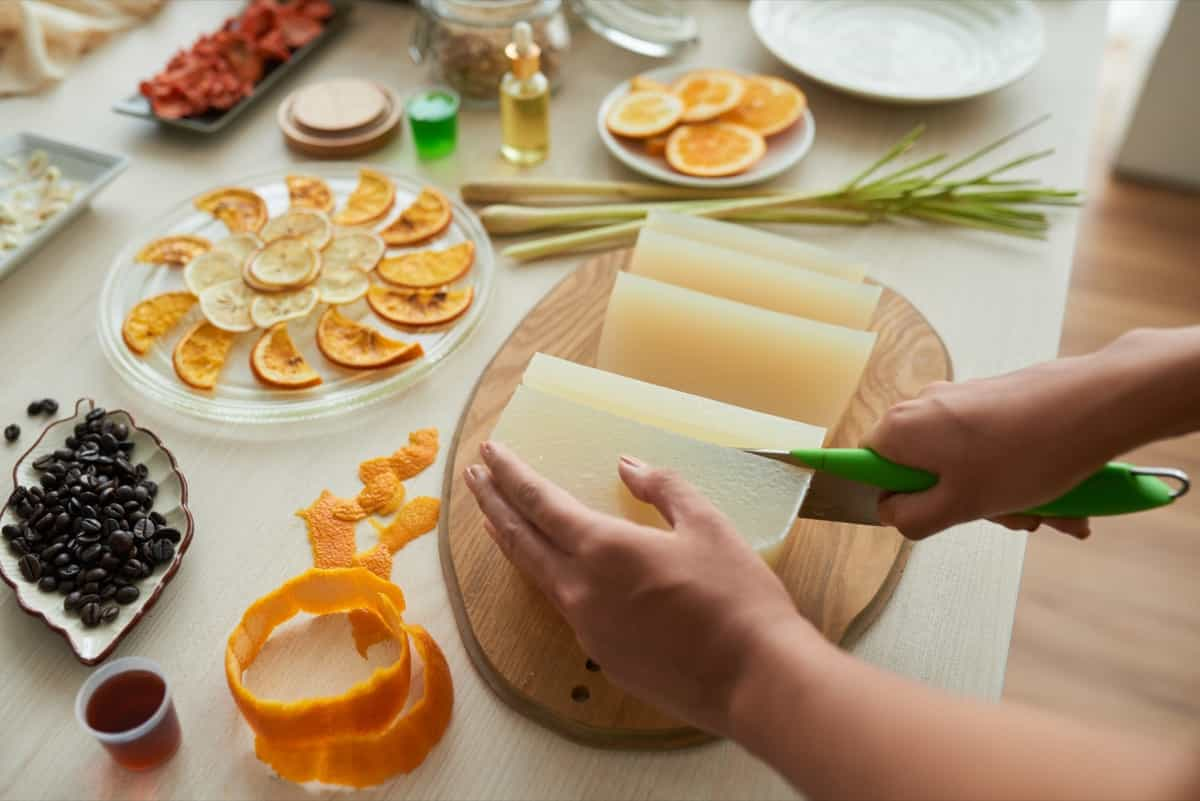
Different Types of Soaps and Their Impact on Garden Pest Management
Mild liquid soaps like castile soap are gentle on plants while effectively combating pests. Dishwashing soap can also be used, but it should be free of harsh chemicals. Soaps work by breaking down the waxy layer on insects, making them vulnerable to dehydration. While these soaps are generally safe for plants, using too much or very strong soaps can harm them. Always dilute the soap properly in water to avoid any negative impacts.
Exploring Natural Additives to Enhance the Efficacy of Soap-Based Insecticides
Soap-based insecticides are a low-cost and eco-friendly alternative to synthetic pesticides. Still, they have some limitations, such as low residual activity and susceptibility to rain wash-off. Exploring natural additives that can enhance the efficacy of soap-based insecticides is a promising research direction that can improve the pest management practices of small-scale farmers. Some potential additives are plant extracts, oils, clay minerals, and surfactants that can increase the adhesion, penetration, and toxicity of soap-based insecticides.
Dos and Don’ts of Using Soap-Based Insecticides in Your Garden
Do’s
- Do Mix Properly: Follow the recipe and mix the soap with water to avoid harming your plants.
- Do Test First: Before spraying your whole garden, test a small area to ensure it doesn’t damage your plants.
- Do Apply Gently: Spray the insecticide gently on both sides of the leaves where pests are present.
- Do Reapply as Needed: If pests return, reapply every few days until they’re gone.
- Do Use Mild Soaps: Stick to mild, natural soaps like castile soap for safety.
Don’ts
- Don’t Use Harsh Soaps: Avoid strong or chemical-laden soaps, which can harm your plants.
- Don’t Spray in Full Sun: Apply the insecticide early morning or late afternoon to prevent leaf burn.
- Don’t Overdo It: Too much soap can damage your plants, so stick to the recommended amounts.
- Don’t Forget to Rinse: After the pest problem is under control, rinse your plants to remove any residue.
- Don’t Ignore Safety: Protect yourself with gloves and eye protection when handling the solution.
Common Garden Pests and How Soap-Based Insecticides Can Help Control Them
Some of the most common pests are aphids, whiteflies, mealybugs, spider mites, and . These insects mostly suck the sap from the leaves and stems of the plants, weakening them and making them vulnerable to diseases. One way to control these pests is to use soap-based insecticides, which are made from natural ingredients and are less toxic than synthetic chemicals.
In case you missed it: Whitefly Management in Cotton Crop: Symptoms, Control, and Best Insecticides for Cotton
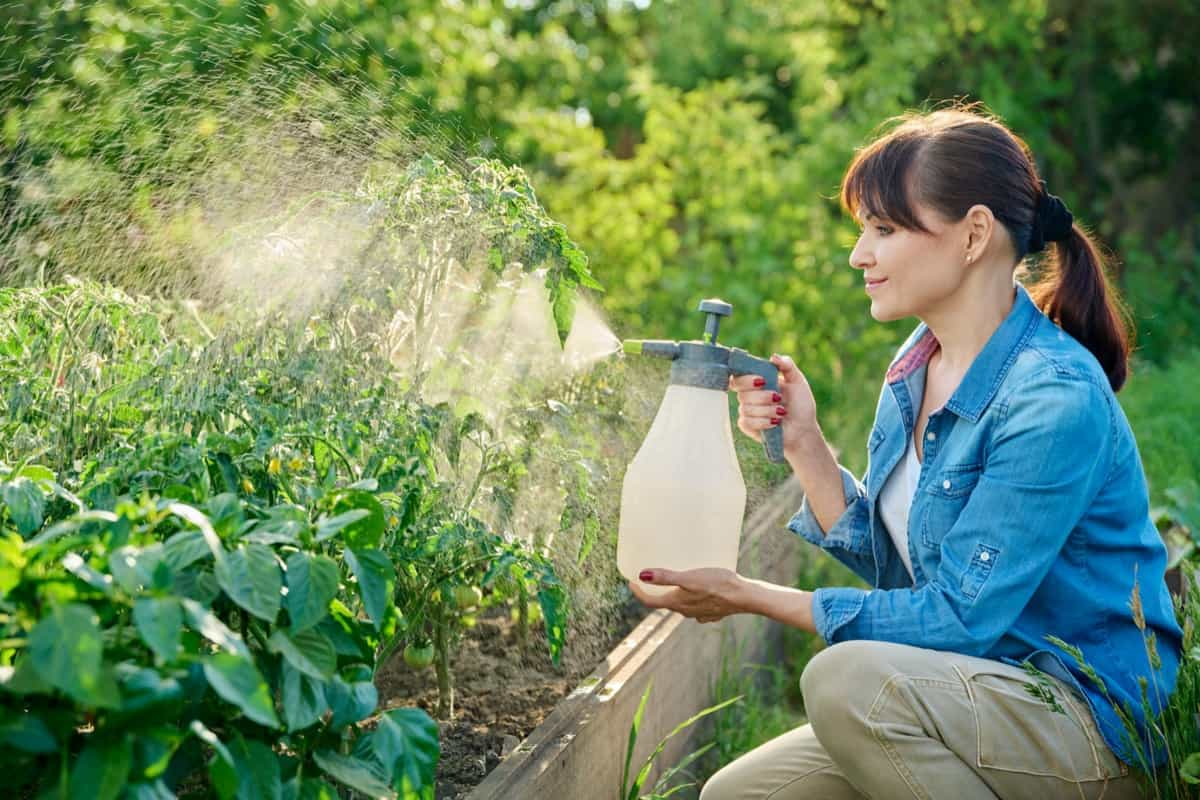
Soap-based insecticides work by disrupting the cell membranes of the insects, causing dehydrate and die. To make your soap-based insecticide, you will need a mild liquid soap, castile or dish soap, water, and a spray bottle. Mix one tablespoon of soap with one quart of water and shake well. Spray the solution toaffected plants, covering both sides of the leaves.
Tips for Proper Application and Timing of Soap-Based Insecticides in the Garden
- Use a ready-to-use product or make your own by mixing 2-3 tablespoons of liquid soap (not detergent) per gallon of water. Avoid using soap that contains bleach, degreasers, perfumes, or skin moisturizers, as they can damage the plants or reduce the effectiveness of the insecticide.
- Spray the insecticide directly on the pests, covering all sides of the leaves and stems. The insecticide only works on contact, so it will not kill any insects that are hiding or have already left the plant.
- Apply the insecticide early in the morning or late in the evening when the temperature is cooler, and the sun is less intense. This reduce the risk of burning the plants or causing them to wilt. Avoid spraying when it is windy, rainy, or foggy, as this will reduce the coverage and efficacy of the insecticide.
- Repeat the solution application every 7 to 10 days or as needed until the pest problem is under control. Monitor the plants for signs of damage or stress, and stop using the insecticide if you notice any adverse effects.
Potential Risks and Precautions Associated with Soap-Based Insecticide Use
Soap-based insecticides are a popular and cost-effective method for controlling pests on plants. However, they can damage the protective coating of some plants, harm beneficial insects like bees and ladybugs, and contaminate water sources and soil if not applied or disposed of safely. To avoid these risks, test the insecticide on a small area, avoid spraying on hot or sunny days, and use mild soap, such as castile or dish soap, diluted with water.
Spray only on affected parts of the plant and avoid contact with flowers, fruits, and vegetables. Rinse the plants with water after a few hours to remove residue, and store the insecticide in a labeled container away from children and pets.
Comparing Homemade Soap-Based Insecticides with Commercial Alternatives
Homemade soap-based insecticides can be effective and economical alternatives to commercial pesticides, but they have drawbacks. Commercial pesticides are usually formulated to target specific pests and minimize harm to plants and beneficial insects. They also have clear instructions on how to use and dispose of them safely. However, commercial pesticides can also be more expensive, toxic, and environmentally harmful.
In case you missed it: How to Unlock Key Technologies to Improve Food Security: Reduce Pesticide Use and Enhance Crop Climate-Resilience
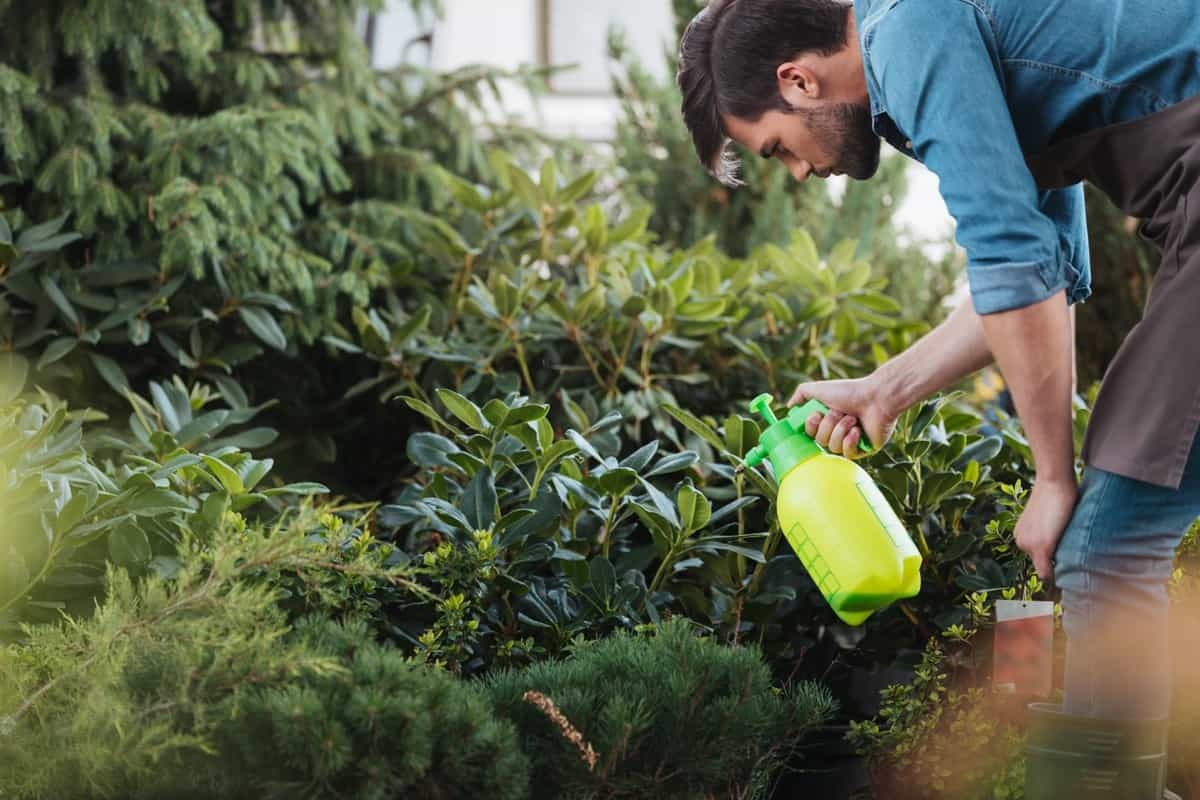
Frequently Asked Questions on Soap-Based Insecticides for Garden Pest Management
What are Soap-based Insecticides?
Soap-based insecticides contain potassium salts of fatty acids derived from plant or animal oils. They control soft-bodied insects such as aphids, mealybugs, thrips, whiteflies, scale crawlers, and spider mites. They work by dissolving the insects’ exoskeleton and causing them to dehydrate.
How do I Make my Soap-Based Insecticide?
You can make your soap-based insecticide by mixing one and a half teaspoons of liquid soap (such as castile) with one quart of water. Add vegetable oil to the mixture to increase its effectiveness. Shake well before spraying the solution directly on the infested plants, covering all surfaces.
What are the Drawbacks of Using Soap-based Insecticides?
Soap-based insecticides have some limitations as well. They are ineffective against hard-bodied insects such as beetles, caterpillars, and grasshoppers. They may damage some sensitive plants such as portulaca, hawthorn, sweet pea, cherries, plum, horse chestnut, mountain ash, Japanese maple, bleeding heart, maidenhair fern, crown of thorns, lantana, nasturtiums, gardenias, and Easter lilies. They may also remove the waxy coating from some plants and reduce their color. They have no residual effect and need to be reapplied frequently. They may lose their potency in hard water.
In case you missed it: Glasshouse Farming: For Increased Yields and Reduced Pesticide Use
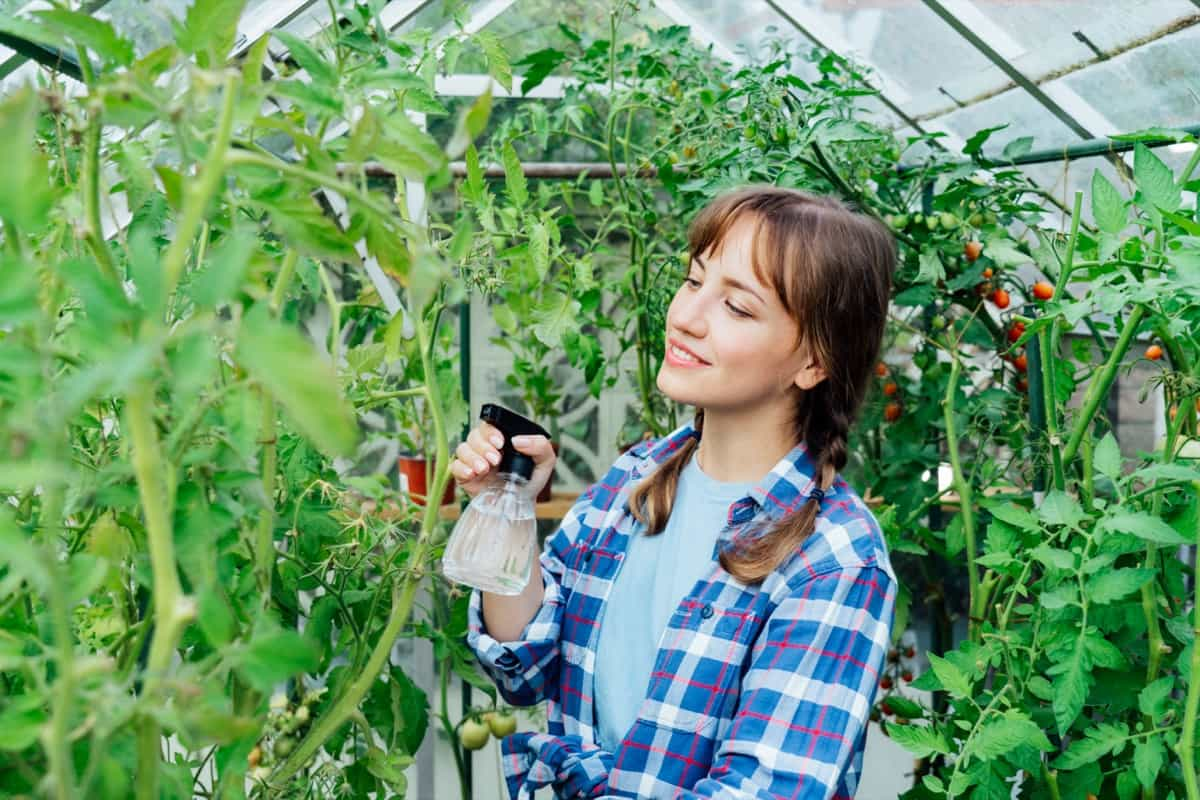
Conclusion
Homemade soap-based insecticides offer a safe and eco-friendly solution for garden pest control. These DIY remedies are not only effective but also gentle on your plants. By following simple guidelines and using mild soaps, you can maintain a thriving garden while keeping harmful chemicals at bay. Embrace the power of nature to protect your green sanctuary from pesky invaders.
- How to Build a Low-budget Goat Shed: Cheap Ideas and Tips
- Goat Farming Training Programs in India: A Beginner’s Guide
- Types of Pesticides Used in Agriculture: A Beginner’s Guide
- Economical Aquaculture: A Guide to Low-Budget Fish Farming
- 15 Common Planting Errors That Can Doom Your Fruit Trees
- How to Make Houseplants Bushy: Effective Tips and Ideas
- Innovative Strategies for Boosting Coconut Pollination and Yield
- Pollination Strategies for Maximum Pumpkin Yield
- The Complete Guide to Chicken Fattening: Strategies for Maximum Growth
- Natural Solutions for Tulip Problems: 100% Effective Remedies for Leaf and Bulb-Related Issues
- Revolutionizing Citrus Preservation: Towards a Healthier, Greener Future
- Natural Solutions for Peony Leaf and Flower Problems: 100% Effective Remedies
- Maximizing Profits with Avocado Contract Farming in India: A Comprehensive Guide
- Natural Solutions for Hydrangea Problems: 100% Effective Remedies for Leaf and Flowers
- The Ultimate Guide to Choosing the Perfect Foliage Friend: Bringing Life Indoors
- From Sunlight to Sustainability: 15 Ways to Use Solar Technology in Agriculture
- The Ultimate Guide to Dong Tao Chicken: Exploring from History to Raising
- The Eco-Friendly Makeover: How to Convert Your Unused Swimming Pool into a Fish Pond
- Mastering the Art of Delaware Chicken Farming: Essentials for Healthy Backyard Flocks
- 20 Best Homemade Fertilizers for Money Plant: DIY Recipes and Application Methods
- How to Craft a Comprehensive Free-Range Chicken Farming Business Plan
- Brighten Your Flock: Raising Easter Egger Chickens for Beauty and Bounty
- How to Optimize Your Poultry Egg Farm Business Plan with These Strategies
- Subsidy for Spirulina Cultivation: How Indian Government Schemes Encouraging Spirulina Farmers
- Ultimate Guide to Raising Dominique Chickens: Breeding, Feeding, Egg-Production, and Care
- Mastering the Art of Raising Jersey Giant Chickens: Care, Feeding, and More
- Ultimate Guide to Raising Legbar Chickens: Breeding, Farming Practices, Diet, Egg-Production
- How to Raise Welsummer Chickens: A Comprehensive Guide for Beginners
- How to Protect Indoor Plants in Winter: A Comprehensive Guide
- Ultimate Guide to Grow Bag Gardening: Tips, Tricks, and Planting Ideas for Urban Gardeners
- Guide to Lotus Cultivation: How to Propagate, Plant, Grow, Care, Cost, and Profit
- Agriculture Drone Subsidy Scheme: Government Kisan Subsidy, License, and How to Apply Online
- Ultimate Guide to Raising Araucana Chickens: Breed Profile, Farming Economics, Diet, and Care
- Bringing Hydroponics to Classroom: Importance, Benefits of Learning for School Students
- Ultimate Guide to Raising Polish Chickens: Breed Profile, Farming Economics, Diet, and Care
- Ultimate Guide to Raising Australorp Chickens: Profile, Farming Economics, Egg Production, Diet, and Care